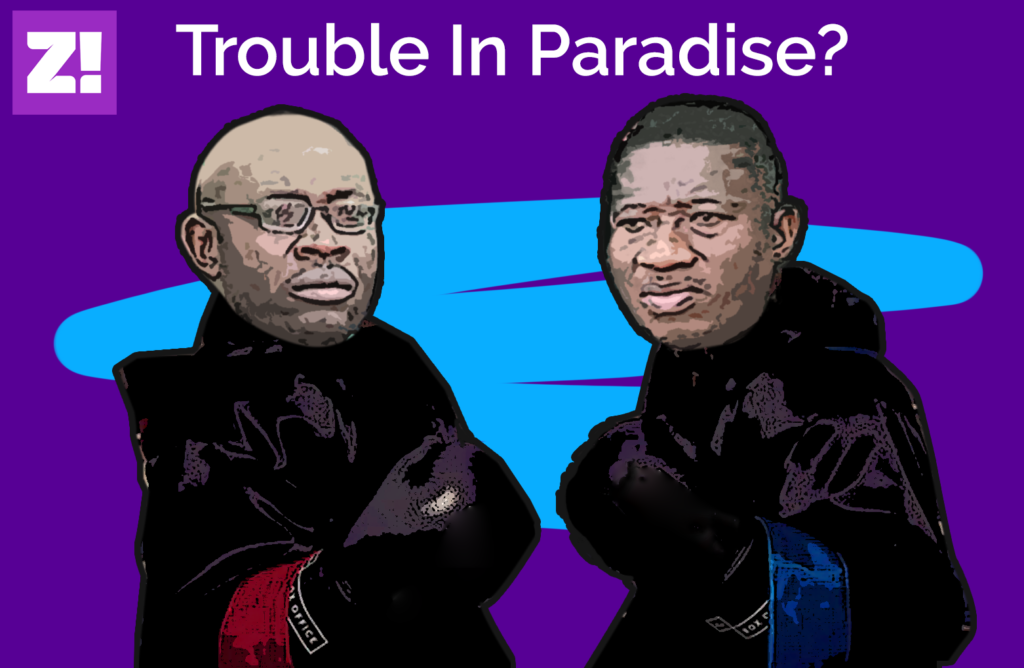For eight wild years, Governor Yahaya Bello ruled over Kogi State in ways that were either crazy, unpopular or downright distasteful. From owing salaries to denying the presence of COVID-19, here’s what his report card looks like.
Year One
He spent ₦260 million on security votes
In 2016, barely a week after he was elected governor, he approved a total of ₦260 million for himself as security votes. His reason was that Kogi state had way too many criminals, and he needed to protect himself.
But ₦148 million of that money was for renovating his office
Of all that money he approved for security votes, ₦148 million was used to renovate the state house he lives in. It’s safe to say he wasn’t just securing himself but also securing the bag.
Then he decided to “clean up” the state’s civil service
He used to be a civil servant. So when he was appointed (not elected) to office, he decided to clean up the civil service after seeing how messy it was.
Year Two
But owed salaries for months in the process
As part of his plan to clean up the civil service even better, he thought the best way to do this was to stop the payment of salaries until everyone in the state’s civil service could successfully pass a screening system to ensure they deserved their job.
The result: He ended up owing salaries for as long as 39 months, and a lot of people were plunged into poverty.
But he fished out thousands of ghost workers
To his credit, the scheme was effective in fishing out some ghost workers, but at what cost?
He reduced the incidence of kidnappings in Kogi state
Before the wave of insecurity that swept Nigeria over the past few years, Kogi State was already an unsafe place. People would regularly get kidnapped on highways and travel was unsafe. When he assumed office, he helped bolster the security forces within the state and the kidnappings were reduced.
Result: The kidnappings did reduce, but there was a surge again in 2021 when banditry became an issue in Nigeria.
Year Three
He upgraded primary healthcare facilities in the state
In 2018, he established 21 model primary healthcare centres in the state, to help increase access to healthcare. In fact, in his first four years, he constructed, upgraded, or renovated 400 primary healthcare centres within the state.
The result: Kogi State emerged as the best-performing state in the World Bank’s ANRiN project, a priority healthcare project that’s focused on increasing access to nutrition services for pregnant and lactating women, adolescent girls, and children.
Year Four
He refused to pay civil servant salaries even after receiving bailout funds
In October 2019, the federal government released salary bailout funds to the states that had salary backlogs and Kogi State was one of them. But the problem is, these funds weren’t paid out. This didn’t come to light until a year later when the EFCC found ₦20 billion of salary bailout funds sitting in a fixed deposit account.
Then he denied the money and threaten to sue the EFCC
After the EFCC found the money and tied it back to the Kogi State government, they returned it to the CBN. Governor Yahaya Bello then said the whole scandal was cooked up to damage his reputation and he had nothing to do with the money. He even threatened to sue the EFCC but that never happened.
Year Five
He denied the existence of COVID-19
At first, he claimed that the virus was artificial and even refused to wear a face mask during public appearances. He also proclaimed that Kogi State was COVID-free, and did his best to suppress testing by the NCDC on so many occasions.
The Result: Five cases of COVID-19 were reported and he simply dismissed them as being manufactured by the NCDC.
He rejected ₦1.1 billion COVID-19 in support funds from the World Bank
In October 2020, he said that he rejected a sum of ₦1.1 billion in COVID-19 support funds from the World Bank because in his words, “COVID-19 is nothing but glorified malaria.” It’s almost as if the millions of deaths across the world meant nothing to him.
Year Six
He spent ₦90 million on COVID-tracking software
After denying the existence of COVID in his state and rejecting money from the World Bank, he went on to spend ₦90 million on COVID risk-assessment software. It turned out that the software only cost ₦300,000 to build.
Then he became a fake professor
In April 2021, Governor Yahaya Bello claimed that he received an honorary professorship in “Humanitarian Services, Human Resource Management, and Peace Building” from St. Thomas-a-Becket University in London. He flaunted the professorship in his typical influencer style. It later turned out that the course does not exist, and that the school he claimed to have received it from doesn’t offer any UK-recognized degrees. It wasn’t even registered as a university, to begin with.
Year Seven
He “asked” the president to declare a state of emergency in Kogi State
In anticipation of the floods that were already predicted to happen, he asked the president to declare his state a “National Disaster Zone”. What this was supposed to achieve, we’re not quite sure.
But he also did some things to help flood victims within the state
In September 2022, the floods hit all the states that were along the River Niger. Kogi State was one of the worst affected states with around 10,000 people rendered homeless by the floods. However, Governor Yahaya Bello created ten Internally Displaced Persons (IDP) camps for those rendered homeless, and also donated relief items to them.

Year Eight
He destroyed roads leading to his opponent’s hometown
In a bid to disenfranchise voters and prevent INEC from reaching the place, Governor Yahaya Bello destroyed some of the major roads leading to the hometown of PDP’s senatorial candidate, Natasha Akpoti.
The result: People fixed these roads so they could vote, but his party won the election by 369 votes.
Other Highlights
Best in road construction
When he’s not destroying roads for political, he sure knows how to construct them. In his first five years in office, he constructed 500km of roads within Kogi State
Overall grade: C-
Governor Yahaya Bello’s eight-year reign has been very self-contradictory. He built primary health centres but still denied COVID. He approved questionable sums of money but went to great lengths to fight corruption in the civil service. It’s giving the same level of unseriousness as a secondary school student who’s not really sure why they’re in school.


















